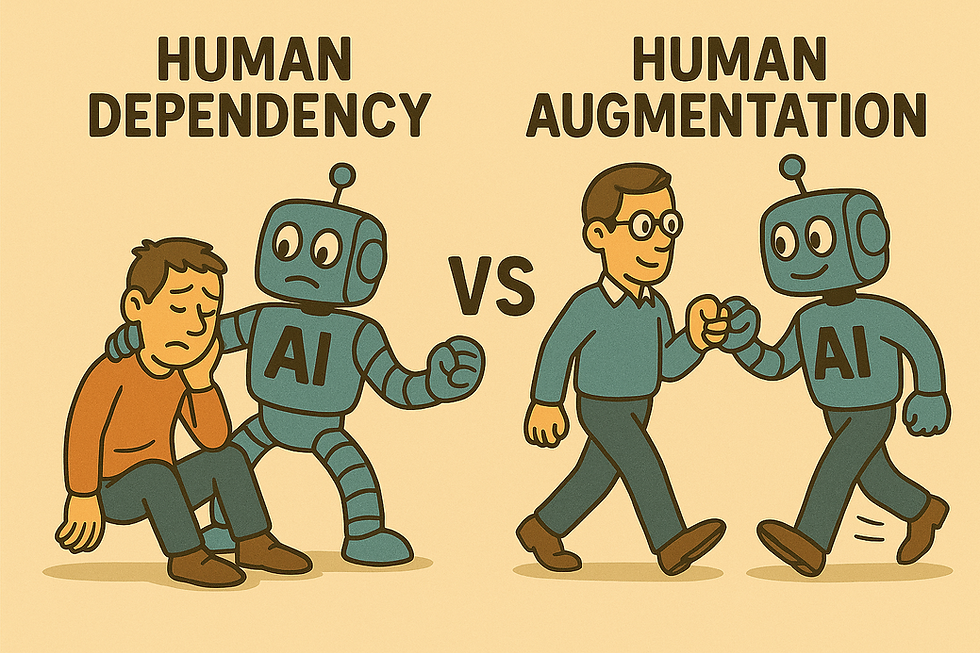AI as a Thought Partner: Beyond the Laziness Myth
- Andy Neely

- May 17, 2025
- 2 min read
Updated: Aug 4, 2025

I've seen a few posts on LinkedIn recently suggesting that AI tools will make us intellectually lazy and diminish our critical thinking abilities. This perspective, while understandable, oversimplifies a complex relationship. The impact of AI on our cognitive processes isn't predetermined—it depends entirely on how we choose to engage with these tools.
Rather than replacing thinking, AI can enhance it when used thoughtfully. Consider AI as a thought partner rather than a substitute for your own intellect.
One powerful approach is using AI to challenge your existing assumptions. When you've developed a perspective on a topic, prompt an AI to present counterarguments or identify potential blind spots in your reasoning. This forces you to defend your position more rigorously or reconsider aspects you hadn't fully examined. Far from making you lazy, this approach demands more intellectual rigor as you evaluate competing viewpoints.
AI can also help you see beyond your own perspective. Ask it to analyze your writing or ideas through different lenses—how might someone from a different generation, cultural background, or professional field interpret your argument? This exercise in perspective-taking enhances empathy and critical thinking simultaneously.
These approaches transform AI from a simple answer-provider into a catalyst for deeper thought. The technology becomes a collaborative partner in your thinking process rather than a replacement for it.
Claims that "AI will make everyone lazy" fail to recognise this distinction between passive consumption and active collaboration. The determining factor isn't the technology itself but how we choose to integrate it into our lives.
As with any tool, the impact of AI on our thinking depends on intention and implementation. Used mindlessly, it might indeed enable intellectual shortcuts. Used thoughtfully, however, AI becomes a mirror reflecting our thoughts back to us in new and challenging ways, ultimately strengthening rather than weakening our cognitive abilities.




Comments